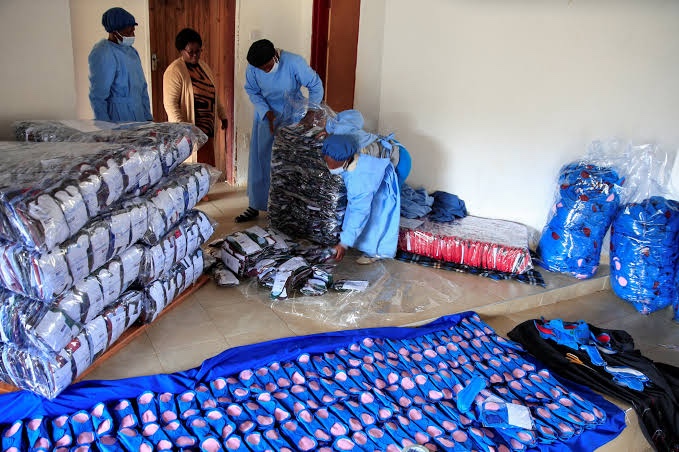A community group in rural Zimbabwe is making reusable sanitary pads, so girls won’t miss school during their period.
The Chiedza Community Welfare Trust in the Mutasa district of Zimbabwe started sewing cloth sanitary napkins when founder Gladys Mukaratirwa realized that local girls were missing school every month because they could not afford disposable hygiene products.

“If you calculate two to five days a month, that’s about 45 school days a year wasted, so we realized they needed to have a sustainable source of sanitary napkins,” Mukaratirwa said.
Cushions are carefully designed and made from fabric and flannel to make them lightweight and easy to wash and dry.
Also, read; The world’s biggest voodoo market, Akodessewa Fetish Market, located in Togo
“It is used, washed and dried in the sun. The sun is strong enough to disinfect this pad. Any harmful microorganism can be destroyed by the sun and the pillow will be reused,” explained Mukaratirwa.

Also a former teacher, the 60-year-old has dedicated her life to empowering young women in her village and teaching them skills that can ensure they earn an income to support their families.
The group, led by female volunteers, sells at a low price to local people and charities across Zimbabwe for distribution to students and vulnerable young women.
“This block is very cheap, and you can use it for a year and six months. For just $4 for a pack of five, that means you don’t have to worry about buying blocks for a year,” Lee told Chisuko, a college student and customer. The factory produces around 600 pads a day.
